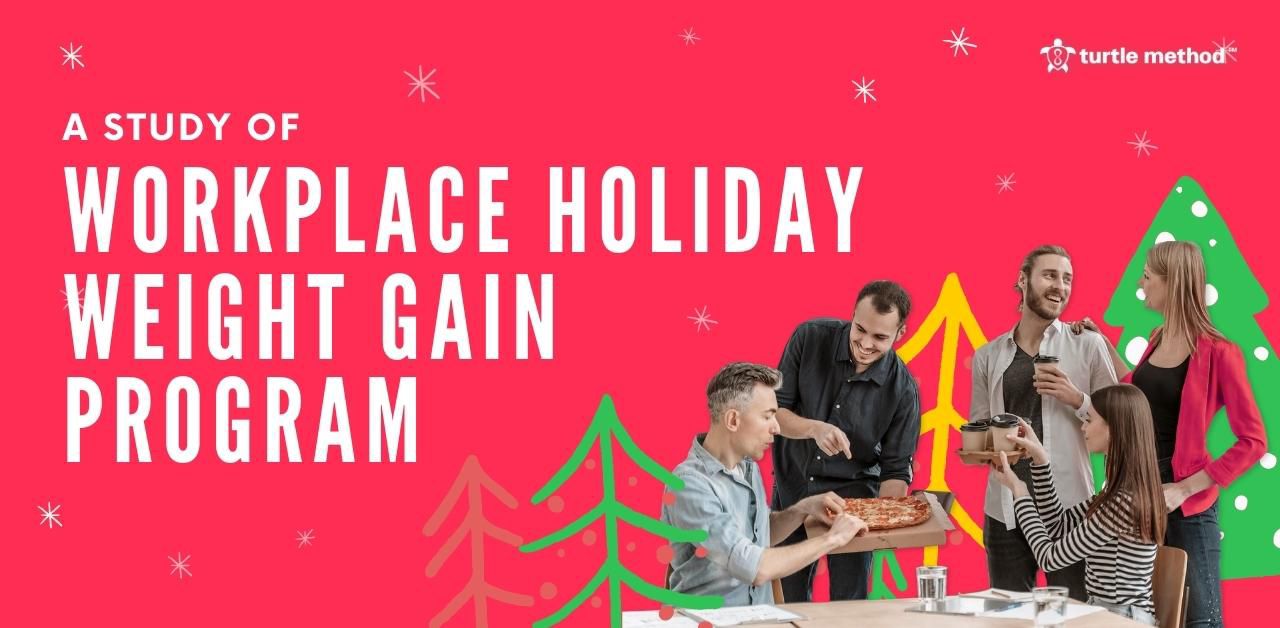The average worker gains about 2-3 lbs (0.9-1.4 kg) a year. Recent research has shown that about half of this weight gain occurs during the Autumn holiday season (Halloween through New Year’s).
Workplaces offer a unique opportunity to promote health behaviour change and the adoption of healthier lifestyles. The population is relatively stable, workers interact with each other regularly, and some policies can be easily implemented in worksite settings.
A previous 2014 study tested a weight gain prevention programme with public school employees. The multi-level interventions used organisational, environmental, and individual behaviour change strategies to encourage healthy eating and physical activity.

Participants demonstrated a 1.5 lb (0.68 kg) loss over 24 months, while the control group gained 1.5 lb (0.68 kg) over the same period. The study used strategies effective for weight loss, such as monitoring food intake and setting goals for healthy eating to prevent weight gain.
Purpose of the study
To test a weight gain prevention programme that was implemented only during the Autumn holiday season.

It was hypothesised that participants would maintain their pre-programmed weight or lose a slight amount of weight (i.e. 1 lb/0.45 kg).
Preventing weight gain during this high-risk holiday season could, over time, significantly delay obesity onset in normal and overweight employees and prevent obese employees from progressing to higher levels of BMI.
Experiment
239 state government employees participated in a weight gain prevention programme offered during the Autumn holiday season. During the 2-year period, 239 employees participated in one or both years, 100 employees in year 1 (2015-16) and 139 employees in Year 2 (2016-17).

The programme was a 10-week, team-based programme that consisted of self-monitoring, regular weigh-ins, a team challenge, and organisational support. Weight was measured at baseline, every two weeks during and after.
The programme encouraged a 500 kcal per day deficit to offset the increased caloric intake and reduced physical activity that characterises the holiday season.

The programme increased awareness of food intake and physical activity behaviours through self-monitoring; however, it was NOT intended to provide a significant amount of new knowledge but rather to initiate skills while building social support for positive behaviours.
The organisation offered a menu of activities (i.e. Healthy Potluck, 5 km run/walk participation, lunch and learn) designed to foster healthy eating and physical activity.

Participants formed teams with four coworkers, and the team received points for participating in weekly programme activities and completing bi-weekly weigh-ins. This team-based approach was designed to increase social support and accountability.
Results
Of the 239 employees that participated in the holiday programme during this 2-year period, 203 only participated in both years, while 36 only participated in the first year.

All of the 203 participants completed the program and related weigh-ins. However, only 97 completed the survey at both pre-and post-test. Only available for 97 participants (47% of the sample). Approximately 90% of participants were female, ranging from 29 to 66 years, with an average age of 47.
Participants lost a significant amount of weight (from 196.7 lbs/89.2 kg to 192.3 lbs/87.2 kg) during the programme. 4.4 lbs/2 kg lost during the holiday period. Positive changes were observed in physical activity and eating behaviours.

Participants significantly increased their moderate and strenuous physical activity, decreased fast food consumption, and increased fruit and vegetable intake.
This study was one of the first to target weight gain during the fall holiday period, with considerable positive results.
Conclusion
This study demonstrated that a weight gain prevention programme designed to encourage healthy eating and physical activity during a high-risk period for weight gain (Autumn holiday season) could be effective in helping participants.
Thus, having a community with a team-based programme that consists of self-monitoring, regular weigh-ins, challenges, and organisational support can be a huge advantage in improving one’s health and well-being.
REFERENCES: PMID: 31189434






